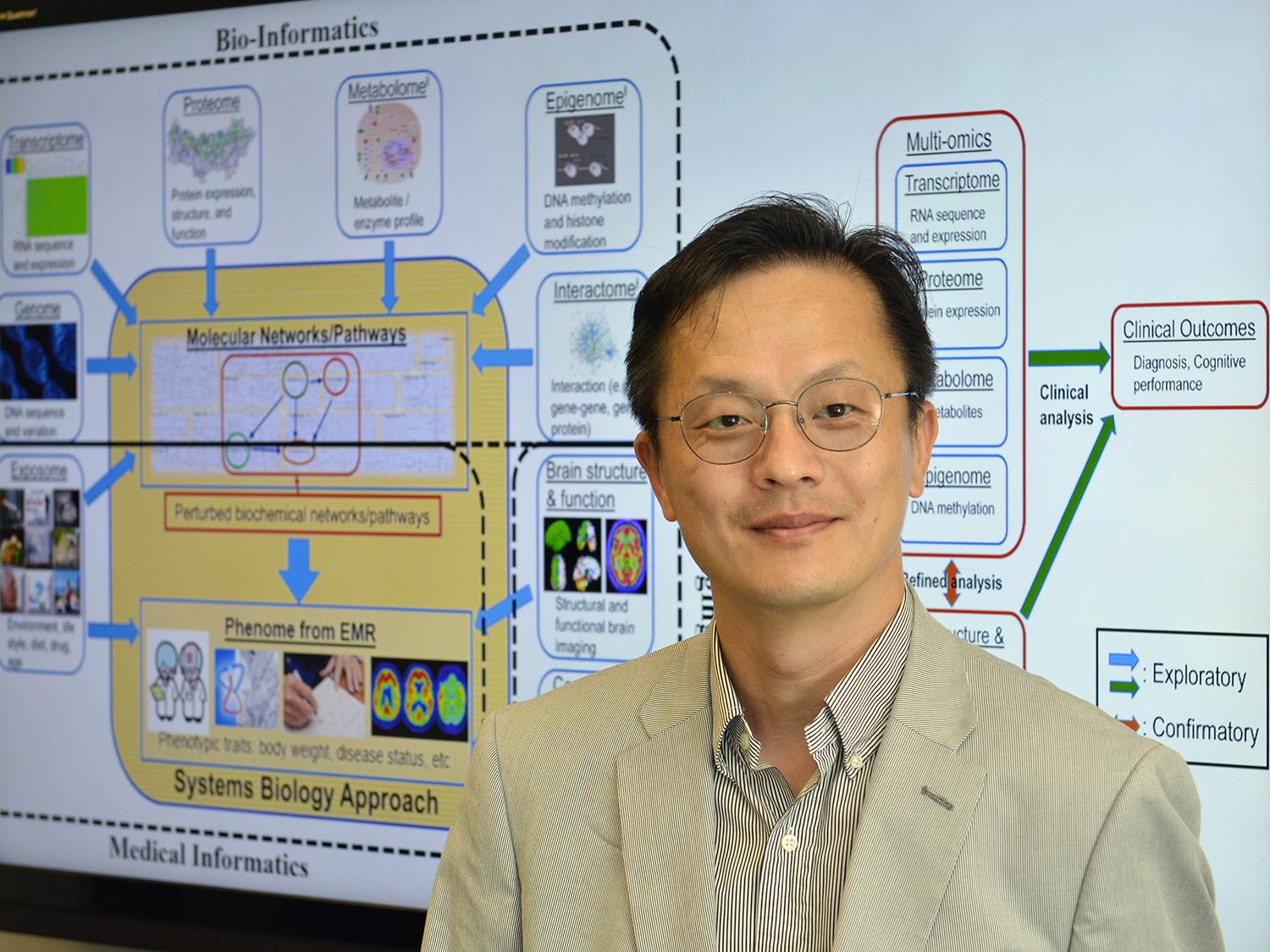Layers of data -- Dr. Sungeun Kim of SUNY Oswego's electrical and computer engineering department recently received a grant from a unit of the National Institutes of Health to use big data from a variety of sources in the development of a software toolkit for earlier, more accurate diagnosis of neurodegenerative disorders such as Alzheimer's disease.
Dr. Sungeun Kim, a faculty member of SUNY Oswego's electrical and computer engineering department, recently received a grant award of nearly $119,000 to use big-data techniques in support of earlier and more accurate diagnosis of neurodegenerative diseases such as Alzheimer's.
The grant, from the National Library of Medicine of the National Institutes of Health, will assist a project -- "Integrating Neuroimaging, Multi-omics, and Clinical Data in Complex Disease" -- that Kim has under way in collaboration with two other researchers.
An assistant professor at SUNY Oswego since 2016, Kim also is an adjunct assistant research professor at Indiana University School of Medicine, where he has worked for years on projects related to Alzheimer's, Parkinson's and other diseases exhibiting progressive dementia.
Kim, whose research interests span and make use of such disciplines as bioinformatics, bioinstrumentation, neuroscience and genetics, joins Indiana University colleague Kwangsik Nho and Geisinger Health System faculty member Dokyoon Kim as principal investigators on the project.
The importance of his work, Kim said, is in combining layers of massive datasets from disparate sources, then testing and validating it, to analyze genes, biomarkers and patient data for better predicting the onset of such neurodegenerative diseases as Alzheimer's and paving the way for earlier treatment and the development of more effective drugs. The results would contribute to software that would be made available to other researchers in the field.
"If we can develop a toolkit to more accurately identify people at risk years earlier, we have more chance to intervene in the progression of the disease," Kim said.
Kim currently has two other grant projects under way, both involving colleagues from Indiana University School of Medicine and its Indiana Alzheimer's Disease Center. Indiana University also is home to the "Big Red II" supercomputer and advanced storage devices, to which Kim has access, if needed, in his research. He also plans to hire one or more Oswego students to assist.
In addition to his research, Kim teaches electromagnetics and a seminar in electrical and computer engineering this fall at SUNY Oswego, and he is developing a bioinstrumentation course. His doctorate is from Purdue University School of Electrical and Computer Engineering.
For information on Oswego's undergraduate program in electrical and computer engineering, visit oswego.edu/ece or call 315-312-6597. Additionally, the computer science department offers a graduate program in biomedical and health informatics; visit oswego.edu/gradstudies or call 315-312-3152.




